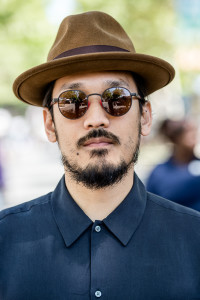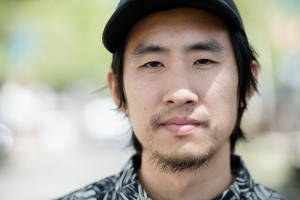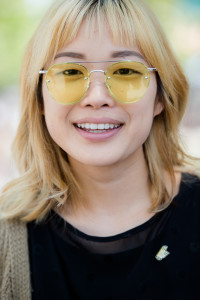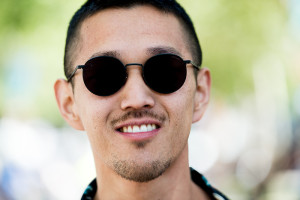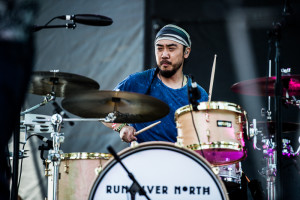Q&A: Run River North breaking indie rock stereotype
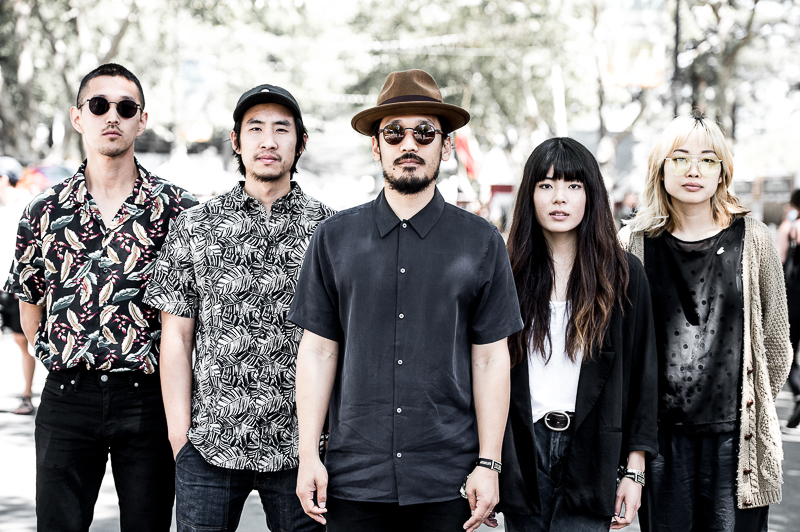
Photos: Alessio Neri
Alex Hwang knows from experience that it’s difficult to change others’ perspectives, even those who are more culturally exposed music fans and industry professionals. Speaking about their band indie rock band, Run River North, the two are used to concertgoers’ first reaction.
Rooney, Run River North
9 p.m., Friday, July 28
The Independent
Tickets: $20.
“When you look at us on stage you’re going to see six Asian-Americans and you’re going to immediately [have] questions,” Hwang said. “‘Are they related? Are they from America?’ All these things can potentially get in the way of enjoying the music.”
Run River North, from L.A., has been battling that perception since pretty much the beginning. The second generation Korean Americans formed a band for a talent competition in 2011. Lead vocalist Hwang had written a song called “Monsters Calling Home,” inspired by his family’s and his friends’ families’ immigration stories. They didn’t win the contest but started writing more songs together. The members were not related, and were not childhood friends. The band, which includes keyboardist Sally Kang, guitarist Daniel Chae, bassist Joe Chun and violinist Jennifer Rim, got together because there are not many musicians like them in the Los Angeles area.
“If you’re Asian and if you play an instrument that’s not a violin, cello, or piano, the circle’s very small,” Chun said.
The big break came after Run River North made a homemade music video for “Fight To Keep” while driving around in their Hondas. The auto manufacturer found it, used it in one of its commercials and booked the band to play Jimmy Kimmel Live in 2012.
A folky self-titled debut followed in 2014, produced by Phil Ek (Fleet Foxes). Hwang handled most of the songwriting himself. But for 2016’s sophomore album, Drinking from a Salt Pond, the entire band had a hand in the lyric-writing and instrumentation. As a result, Run River North moved away from some of their more acoustic elements and closer to rock. An EP of B-sides called Superstitions followed last January and includes a cover of the Killers’ “Mr. Brightside.”
We met up with the band at BottleRock Napa Valley, which Hwang said was the first major festival at which the band has played; hopefully, a taste of things to come. Run River North is currently in the midst of a tour with Rooney and will play at the Independent July 28.
Last spring at South by Southwest, Run River North performed at the first of its kind Asian American music showcase. Why is important for something like that to take place and why was it important for you to be involved?
Alex Hwang: I think it’s important because it hasn’t happened before, and you don’t have a lot of representation from Asian-American artists. I think collectively, there’s not really a community. The stereotype still holds true where if you’re Asian and you want to do music, it’s hard to see what that looks like. … To start a dialogue [is] definitely a huge step in the right direction. Whether it’s a good idea or not, it’s worth having… For us I think it’s super important because [being Asian is] something that we can’t not be.
Daniel Chae: The main purpose is to empower other artists who might be Asian, and it’s good to do it. If we’re the first ones, then so be it, but we’re already out there trying to make it as a band. … We hope to empower other Asians.
Your culture is extremely important to you, but in terms of music, would you prefer to be seen simply as an indie rock band?
Hwang: Yeah. We prefer these things, but again, everyone’s going to do what they want with it so I think our preference has no control over what’s going to be out there. … Someone’s going to take our song and someone’s going to take our look however they want. We can just continue to be confident in what we have rather than try to make everyone see the way we want to.
Have all of you played in bands before Run River North?
Jennifer Rim: No, I’ve never been in a band. For me I was studying classically. Then I was going to college down in Southern California, and this was happening simultaneously. I made the decision to take a break from school and decided to go on this ride. It was my first experience, at the age of 18.
Sally Kang: Yeah, I didn’t grow up thinking I was going to do music as a career. It just happened really randomly.
Your original drummer, John Chong, left the band earlier this year, so you’re touring and incorporating a new member on the fly. What is it like playing all these shows that you already had scheduled and trying to incorporate a brand new member.
Hwang: Luckily, [fill-in drummer] Abe [Kim] is a good guy, he’s great. He’s a talented drummer. But it makes us miss the energy and the person that John was in the band. Then it can frustrate us because we had so many things that we can’t now do on the fly like, “Let’s just play this song.” We can’t do that kind of stuff and at the same time this train keeps moving. … But it’s a good struggle. I think out of that it’s really helped all of us to step up our game. [Chong] was such a big energy on stage, within the band and a big voice in the band. Without him I think it’s really given us the choice, “Do we want to keep doing this?” We need to all step up to do this, and we can’t just be who we were before he left. It is a new place but it’s a struggle that feels like it’s necessary if you want to grow as humans and as a band.
I love smart album titles. I feel like artists don’t put as much effort into titles anymore. What does yours, Drinking From a Salt Pond, mean to you?
Hwang: For me personally, it’s referencing a verse in the Bible about how can fresh water can come out of a salt pond, or how can your yeses be no’s, and [other] contradictions. In this world, that happens all the time. There’s shitty things that happen and there’s also amazing things that happen. Good people do bad things and bad people do good things. In our band, there was a lot of toxic relationships, and people weren’t really getting along, but somehow, despite all those things—and possibly because of those things—a lot of really great songs came out of that. So it felt like we were drinking from this really stagnant pool of saltwater that was really bitter, but somehow the fruit that was coming out of it was good stuff.
Do you guys like to incorporate your faith actively in your songs as well?
Hwang: I think we like to incorporate our faith as much in our life as music. It’s not very intentional, like, “Now it’s music time, let’s talk about faith.” Our music is a reflection of our lives and not necessarily something we put on stage [for show]. Our faith is as much a part of our lives as what we ate this morning or our relationships.
On the album, there’s a song called “David Robinson,” for the former San Antonio Spurs hall-of-famer. Are you basketball fans, or is there a different meaning?
Joe Chun: Daniel’s a big basketball fan. That song was actually a different song before. Then one of our friends, Michael Cohen … was helping us write and we were talking about [differences in] the hall of fame speeches between Michael Jordan and David Robinson; how drastically different it was. David Robinson is an amazing human being, and a basketball player. Michael Jordan’s one of the best, but David Robinson—
Has no ego and is more humble.
Chun: Yeah. This guy is amazing. This should be our role model. So we wrote that song so it’s about him, or very much inspired by him.
If you had a chance to have him listen to that song—
Chun: I think he’s listened to it.
Chae: He gave us his blessings. He was going to come to a show in San Antonio, but he had other obligations.
Chun: He was watching his son play in the Elite Eight for Duke.
Chae: It’s going to happen; we just need to wait.
Follow Roman Gokhman at Twitter.com/RomiTheWriter and RomiTheWriter.Tumblr.com. Follow photo editor Alessio Neri at Instagram.com/windowofcolor and Windowofcolor.com.

